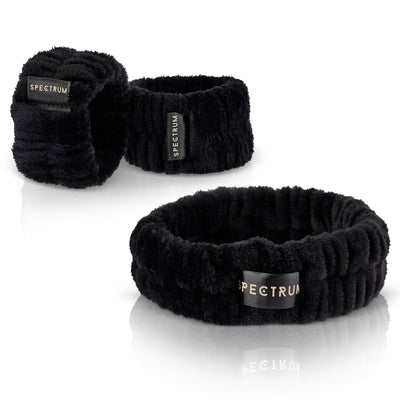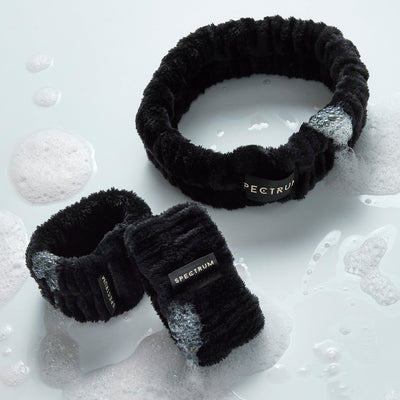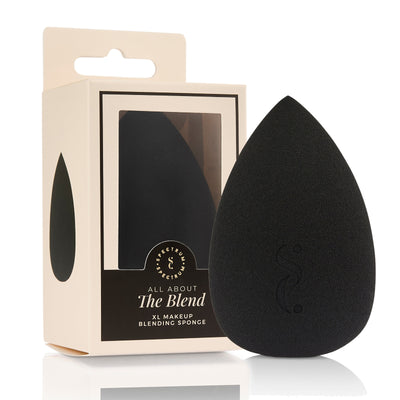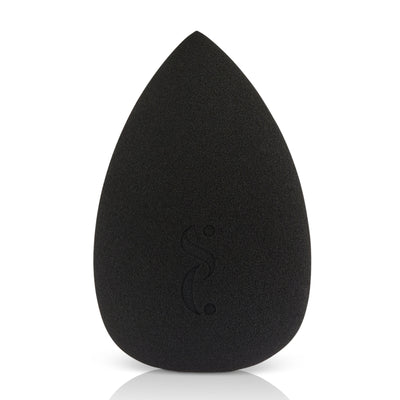How to Become a Makeup Artist in the UK

Want to become a makeup artist but not sure where to start? Don’t worry, we’ve got you. From what qualifications and equipment you need, to what a typical day in the life of an MUA looks like, we’re here to tell you everything there is to know about breaking into this exciting industry.
What do makeup artists do?
A makeup artist visually transforms a person’s appearance with cosmetics, face paint or special effects makeup. But what your role entails depends completely on the industry you work in. With the choice of TV, film, weddings, fashion, theatre, retail, content creation, salons and cruise ships, you’ll most likely be working in coordination with others – think hair stylists, costume designers, models, and photographers.
A day in the life of a makeup artist can look wildly different depending on their schedule, but on a typical day you can expect to:
- Work with people
- Deliver excellent customer service
- Listen to what your client wants
- Cleanse and sanitise your brushes
- Apply makeup products (of course!)
- Stay on top of beauty trends
- Upskilling and training
How to become a makeup artist in the UK?
As you don’t need a university degree or official qualification to become a makeup artist, there isn’t a set route into the industry. But here are some tips to help you get started:
-
Decide the type of makeup you want to work in
As we’ve discussed, there are plenty of industries that need makeup artists. But which ones do you want to work in? Once you’ve decided, you can then tailor your portfolio to apply to these types of companies.
-
Become certified
While you don’t need any formal training to become a makeup artist, gaining a certificate makes you look more professional and will help you to stand out in this competitive industry.
-
Practise makes perfect
New beauty and industry trends are always emerging, so it’s a good idea to keep improving your skills. You can always use your family and friends as models to practise on!

How to become a self-employed makeup artist in the UK?
The route of self-employment looks a little different to working as a makeup artist for a company. There are a few essential things you need to do before you can build a client base, we’ve covered these below.
- Develop your skills
- Put together a portfolio
- Get insurance
- Curate your own supply
- Create social media accounts
- Become a resident makeup artist
Bear in mind that when you work for yourself, you’ll also need to:
- Do your own business admin (like scheduling appointments & contacting clients)
- Answer queries and calls
- Send invoices
- Do your own accounts and tax information. As you become more established it may be worth investing in an accountant to do that for you.
How to find clients as a makeup artist?
We’ve touched on this a little already, but social media will be the most powerful tool for reaching new clients. You can upload your work and use it as your online portfolio. Use hashtags on your posts and you can easily be discovered by people looking for makeup artists.
Buying a domain and having your own website is also another way to reach new clients. Ensure it is search engine optimised and people are more likely to find you organically when they search for makeup artists in your niche – whether that’s in a specific industry or location.
How to become a permanent makeup artist in the UK?
- Take an accredited PMU course
To become a permanent makeup artist you do need a qualification, and this has to be a course from an accredited provider. Look for BABTAC-approved and accredited courses. You should also check with your local council if you need to get a licence to practise (more on that a little later).
- Get a licence
Apply to your local council to get a licence to carry out treatments. To be compliant with UK regulations, you’ll need to apply to your local council to get a licence to carry out semi-permanent makeup procedures. The council may also come and inspect the premises you’ll be working from to check it meets their criteria. You’ll most likely need to present your training certificates, insurance papers, and PAT test (which tests your equipment’s safety) to them too.
- Invest in reputable equipment
You’re only as good as your tools, but not only that, you want to deliver the best possible results for your clients too. Make sure you invest in industry-approved, high-quality equipment, as well as any inks and pigments you need.
- Work on models
Once you’ve set up your business and become a certified semi-permanent makeup artist, it’s time to start working on real-life clients. At first, this will take some getting used to which is completely normal, because you’re carrying out treatments without the reassurance of an instructor.
To help with any nerves, have all your equipment set up before your client arrives and read through your training notes too. Remember to take photos at every stage of the treatment, you’ll need them for insurance purposes.

What equipment do I need to become a makeup artist?
To become a makeup artist, you need to make sure you’ve got all the tools of the trade – to ensure you’re delivering the best, most professional experience for your clients.
First, you’ll need to curate a supply of makeup – think everything from eyeshadows and lipsticks to skin products and bronzers. And don’t forget, you’ll need to buy your complexion products in a range of shades and tones to work with a diverse client base.
Then there are makeup brushes, because you need expert tools to apply your new makeup stash too. Our very own Sculpt makeup brush collection is a range of ultra-high quality brushes developed by none other than A-list makeup artist Ash K Holm – and us, the leading makeup brush brand.
Don’t forget you’ll need to clean your brushes in between clients too, to stop any nasty bacteria and infections from spreading from client to client. We’ve got a range of brush-cleaning products to keep your tools sanitised and in tip-top condition.
And last but certainly not least, how you store your brushes will make all the difference to how your brushes perform, and how long they last. When you’re on the go visiting different clients, you’ll want a brush storage solution like a roll-up bag to easily and neatly transport your tools.



